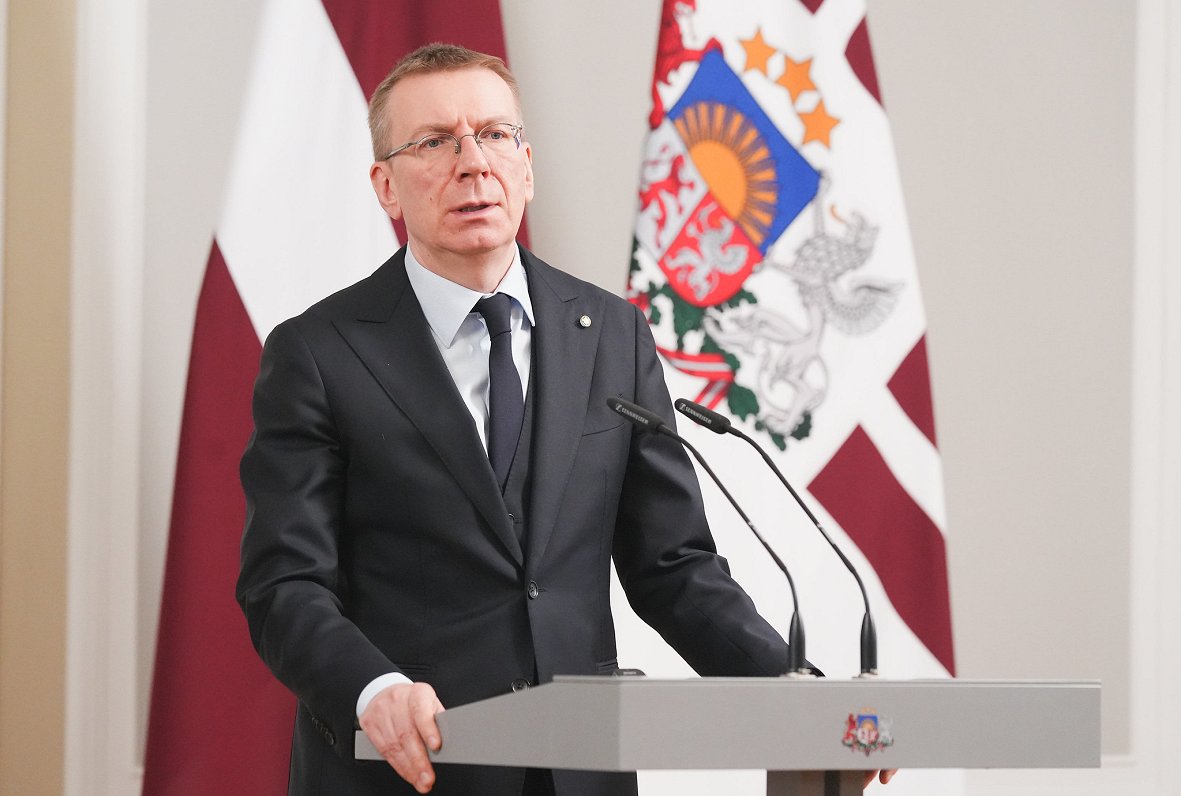Speaking at Rīga Castle after talks with Prime Minister Evika Siliņa, Rinkēvičs said securing the EU’s external border was not just about enhanced infrastructure but also about changing existing EU norms to curb the flow of migration and make the rules on granting asylum “much stricter”.
The President noted that the hybrid attacks carried out by Russia and Belarus on Latvia’s eastern border are creating migration problems. Therefore, it is necessary to think not only about physically strengthening the border, but also about stricter legal regulations.
“We see that hybrid attacks on our border are of varying intensity – sometimes they are stronger, sometimes they are less strong. We also talked about the need to move faster, and the prime minister informed about the steps that have already been initiated and taken in the European Council discussions, in various other political formats, in order to radically review the European conventions and European norms related to migration, in order to strengthen this legal framework,” said Rinkēvičs.
The President pointed out that there is a growing consensus among European Union member states not only on the physical protection of the Eastern border, but also on “changing the legal framework.”
“However, this would make this migration flow and asylum review much stricter, much more appropriate to the requirements of the 21st century, rather than a period when various types of legal acts and conventions were adopted,” the president added.
He also noted that serious migration concerns were not limited to the eastern border, and are also a major issue in the south of Europe, so rule changes and improvements suitable there would need to be taken into account, too.
Also on Wednesday, the Ministry of the Interior presented proposals for stricter control of the residence of third-country nationals in Latvia.
According to Interior Minister Rihards Kozlovskis, since last year the hybrid war, “which has long been a reality,” has entered a new phase, when Latvia and Europe in general are already starting to face acts of sabotage and provocation. An example of such attacks in Latvia is the attempted arson of the Occupation Museum.
“Unfortunately, this trend is not going away. There is information that the Russian side is also devoting additional resources to this, and Latvia, of course, is not a unique country in this regard,” Kozlovskis said.
In Kozlovskis’ assessment, the intensity of such acts of sabotage could increase, which can be attributed to Latvia’s consistent leadership in its position regarding support for Ukraine, “which cannot remain without consequences from the enemy’s side.”
